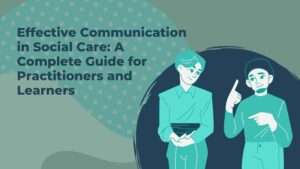Introduction
If you’re considering a future in business, economics, or management, a degree in accounting and finance is one of the most rewarding and practical choices. But before you start dreaming about balance sheets and investment portfolios, it’s essential to understand the accounting and finance degree entry requirements. This comprehensive guide breaks down everything you need to know — from academic prerequisites and admission criteria to relevant skills and qualifications needed to successfully apply for an accounting and finance degree in the UK and beyond.
What is an Accounting and Finance Degree?
An accounting and finance degree typically combines the study of how businesses manage their money (accounting) with broader concepts of financial planning, investing, and managing economic resources (finance). It prepares students for careers in accountancy, banking, financial consultancy, and corporate finance.
Why Entry Requirements Matter
Accounting and finance degree entry requirements ensure that applicants possess the foundational knowledge, academic rigor, and skill set needed to succeed in a challenging and analytical degree program. Meeting these requirements increases your chances of acceptance and prepares you for the intensive coursework ahead.
1. General Academic Requirements
UK Universities
Most UK universities require the following:
- A-levels: Usually ABB–BBB including Mathematics or Economics.
- Scottish Highers: Typically AABBB–AAABB.
- BTEC: DDM–DDD with mathematics modules preferred.
- International Baccalaureate (IB): 32–36 points, including Higher Level Mathematics.
In-Depth Example:
The University of Manchester’s BSc in Accounting and Finance may ask for AAB at A-levels, including Maths and one other relevant subject such as Economics, Business Studies, or Further Maths. This level of academic rigor reflects the program’s analytical depth.
US Universities
For US institutions:
- High School GPA: Minimum 3.0–3.5
- SAT/ACT scores: SAT (1300+), ACT (28+)
- Advanced Placement (AP) courses in Math or Economics are highly advantageous.
International Students
International students must provide equivalent qualifications:
- Bangladesh: HSC GPA 4.5+ and Foundation Year or A-Levels.
- India: 75–85% in Class 12 with Commerce/Mathematics.
- Nigeria: WAEC with good grades plus a foundation or diploma.
- Proof of English proficiency (IELTS, TOEFL, etc.) is mandatory.
2. Subject-Specific Requirements
Core Subjects
Most universities require strong grades in:
- Mathematics: Critical for accounting principles and financial calculations.
- Economics: Useful for understanding macroeconomic and microeconomic contexts.
- Business Studies: Not essential, but strengthens your background.
Optional Subjects That Help
- Further Mathematics
- Statistics
- Computer Science
- Accounting (if offered at the high school level)
3. English Language Proficiency
For non-native speakers, demonstrating English proficiency is essential.
Common Tests & Scores:
- IELTS: Minimum 6.5 overall, with no band less than 6.0
- TOEFL iBT: 88–100 overall
- PTE Academic: 60–70 minimum
Additional Preparation
Some universities may offer a pre-sessional English course if you fall slightly below the minimum requirements.
4. Foundation Courses (If Needed)
Foundation years are offered to students who do not meet direct entry requirements.
Who Should Take Foundation Courses?
- International students from different education systems
- Students with lower than required grades
- Applicants switching academic streams
Curriculum Overview:
- Introduction to Accounting
- Business Maths
- Academic English
- IT and Computing for Business
Example:
University of Essex offers an International Foundation Year that leads to Accounting and Finance, provided students complete the year with a 60% average.
5. Work Experience and Internships
Although not mandatory, relevant work experience can make your application stand out.
Examples:
- Part-time bookkeeping
- Volunteering in financial departments
- Shadowing an accountant
Why it Matters:
- Demonstrates initiative
- Enhances your personal statement
- Gives you real-world exposure
6. Personal Statement
An impactful personal statement can make or break your application.
What to Include:
- Why you want to study accounting and finance
- Your relevant academic strengths
- Work experience or voluntary activities
- Career goals
- Examples that show your passion for numbers and problem-solving
Tips:
- Be honest and specific
- Avoid clichés like “I have always been passionate about numbers” unless followed by solid examples
- Proofread thoroughly
7. Interviews and Assessments
Some universities may conduct interviews or require admissions assessments.
What They Evaluate:
- Analytical thinking
- Communication skills
- Problem-solving ability
How to Prepare:
- Review current financial news
- Practice aptitude tests online
- Be ready to discuss your personal statement
8. Alternative Entry Routes
Not everyone follows a traditional path. Universities often have flexible routes to accommodate different learners.
Examples:
- Mature Students: Often assessed on professional experience and motivation.
- Access to HE Diploma: Relevant pathways accepted by many UK universities.
- Apprenticeships: Degree apprenticeships in accounting and finance are growing in popularity.
Benefits:
- Earn while you learn
- Gain work experience
- Avoid student debt
9. Financial Requirements
Studying accounting and finance involves costs beyond just tuition.
Tuition Fees:
- UK Students: £9,250 per year (average)
- International Students: £12,000–£25,000 per year
Other Costs:
- Accommodation: £4,000–£8,000 per year
- Books and Materials: £300–£600
- Living Expenses: £9,000–£12,000 annually
Financial Aid:
- Scholarships
- Bursaries
- Government student loans
10. University Rankings and Entry Standard Comparison
Understanding which universities offer the best programs can help you target your applications wisely.
Top UK Universities for Accounting and Finance:
- London School of Economics (LSE)
- University of Warwick
- University of Bath
- University of Leeds
- University of Manchester
Entry Standards:
- LSE: A*AA with Mathematics
- Warwick: AAA with Mathematics
- Bath: AAB including one quantitative subject
11. Career Prospects After Degree
Understanding the career outcomes linked to an accounting and finance degree helps shape your motivation and expectations.
Popular Job Roles:
- Accountant
- Financial Analyst
- Auditor
- Investment Banker
- Management Consultant
Starting Salary:
- UK Average: £25,000–£32,000
Employers:
- Big Four Firms (Deloitte, PwC, EY, KPMG)
- Investment banks
- Public sector
- Start-ups
12. Conclusion
Meeting the accounting and finance degree entry requirements is your first major step toward a successful career in the financial world. Whether you’re a high school student aiming for a top UK university or an international applicant looking to build a global finance career, understanding and fulfilling the entry requirements is crucial. From academic qualifications and language proficiency to personal statements and interviews, every element contributes to your eligibility and readiness.
Make sure to research specific university requirements, prepare your application meticulously, and highlight your passion for finance and numbers in every aspect of your submission. Good luck on your journey to becoming a financial professional!
Read More: What is Business Finance with Example







